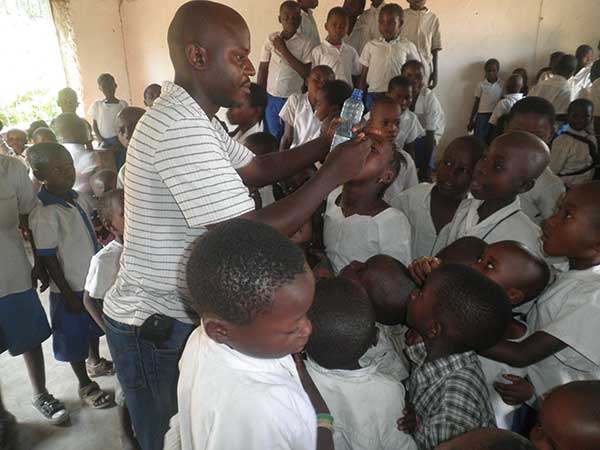Research on Malaria
“Be the change that you wish to see in the world.”
— Mahatma Gandhi
Malaria remains a leading cause of illness and death in sub-Saharan Africa, disproportionately affecting children under five. Despite existing treatments and preventive measures, the disease continues to pose significant health challenges.
Innovative Approach: PC240m
PC240m is a resonance-based remedy developed to treat and prevent malaria, and has been used since 2002. Initial observations in Malawi indicated that patients treated with PC240m remained free from frequent malaria attacks for six months or longer. This finding suggested potential for both treatment and prevention.

Malaria continues to claim lives across sub-Saharan Africa, especially among young children. ARHF’s fieldwork shows that PC240m—a natural, resonance-based remedy—may help reduce infections, hospitalizations, and deaths when used preventively in communities. Early data from regions where it has been distributed show remarkable declines in malaria-related cases and mortality, suggesting a powerful potential for wider impact.
Subsequent applications of PC240m across various regions have yielded promising results
Field Observations and Community Impact
Africa Malaria Prevention Project (AMPP)
Building on these outcomes, ARHF launched the Africa Malaria Prevention Project (AMPP) in 2013, aiming to provide accessible, side-effect-free malaria prevention. In Malawi, after offering AMPP to 27,000 individuals, schools observed reduced absenteeism, and local hospitals reported decreased malaria-related hospitalizations and deaths. [1]
Epidemiological Study: Bukavu, DR Congo (2018–2023)
A non-randomized outcome study was conducted in the Kadutu Commune, comprising 13 health areas (HAs). Here are results:
Malaria Cases per 1000 (all ages)
Malaria Related Deaths per 10000 (all ages)
References
- Van der Zee HE (2016). Africa Malaria Prevention Project. Homoeopathic Links 2016;29(2):137–146.
- Van der Zee HE, Alimasi DB, Balikwisha JN, Walach H (2025). Novel Immune Supportive Prevention of Malaria, Data Collection Research in the city of Bukavu (DR Congo). International Journal of Malaria and Tropical Diseases (IJMTD) Vol. 6(1):113-121






